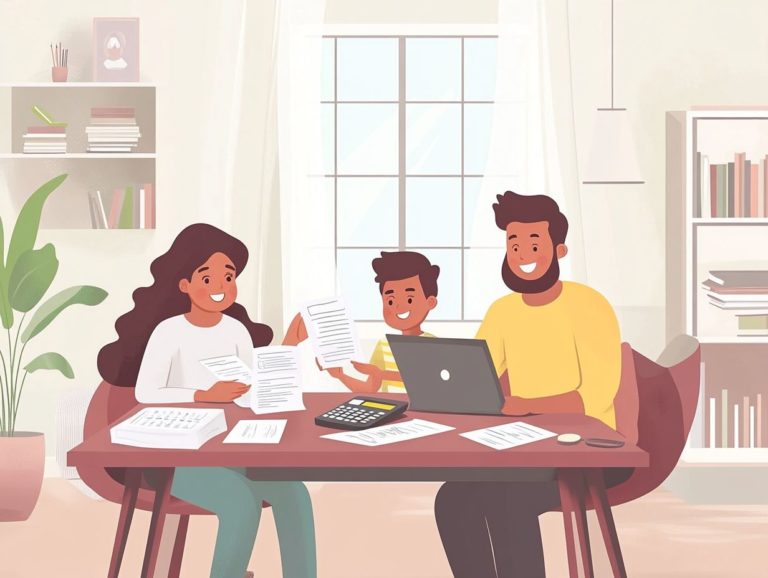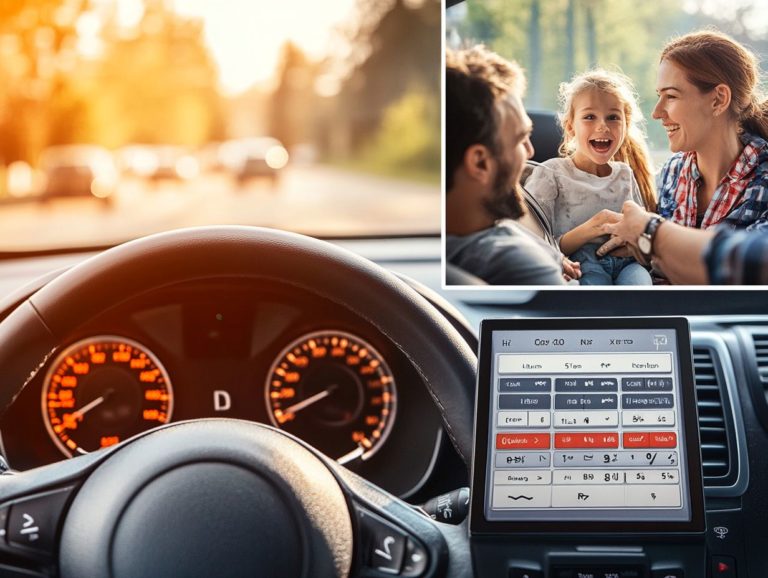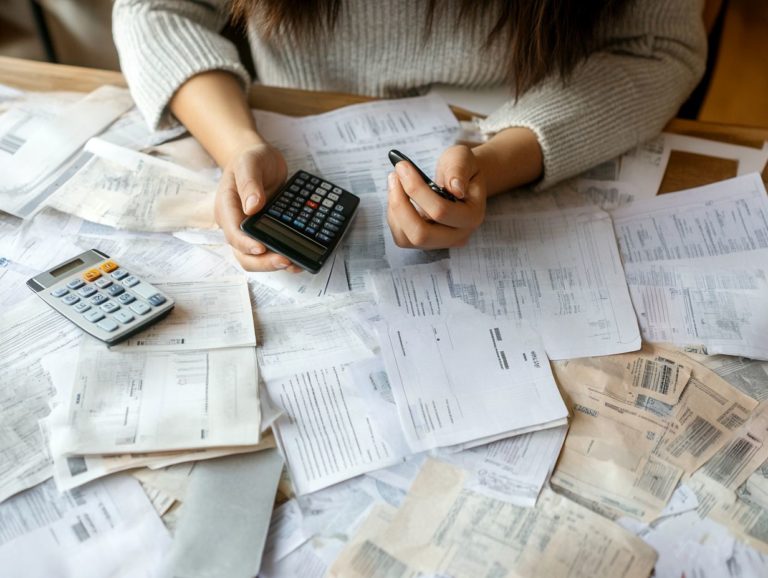What Should I Do After a Car Accident?
Experiencing a car accident can feel utterly overwhelming, leaving you disoriented and uncertain about your next steps.
From ensuring the safety of everyone involved to dealing with insurance claims, there are essential actions to take immediately after an incident. This guide will walk you through crucial steps, such as documenting the scene, seeking medical attention, and understanding your legal rights.
Whether you re a seasoned driver or just starting out, being aware of these actions can significantly impact your recovery process.
Contents
Key Takeaways:
- Call for help and prioritize safety after a car accident.
- Collect important evidence to support your claim.
- Seek medical attention and understand your legal rights.
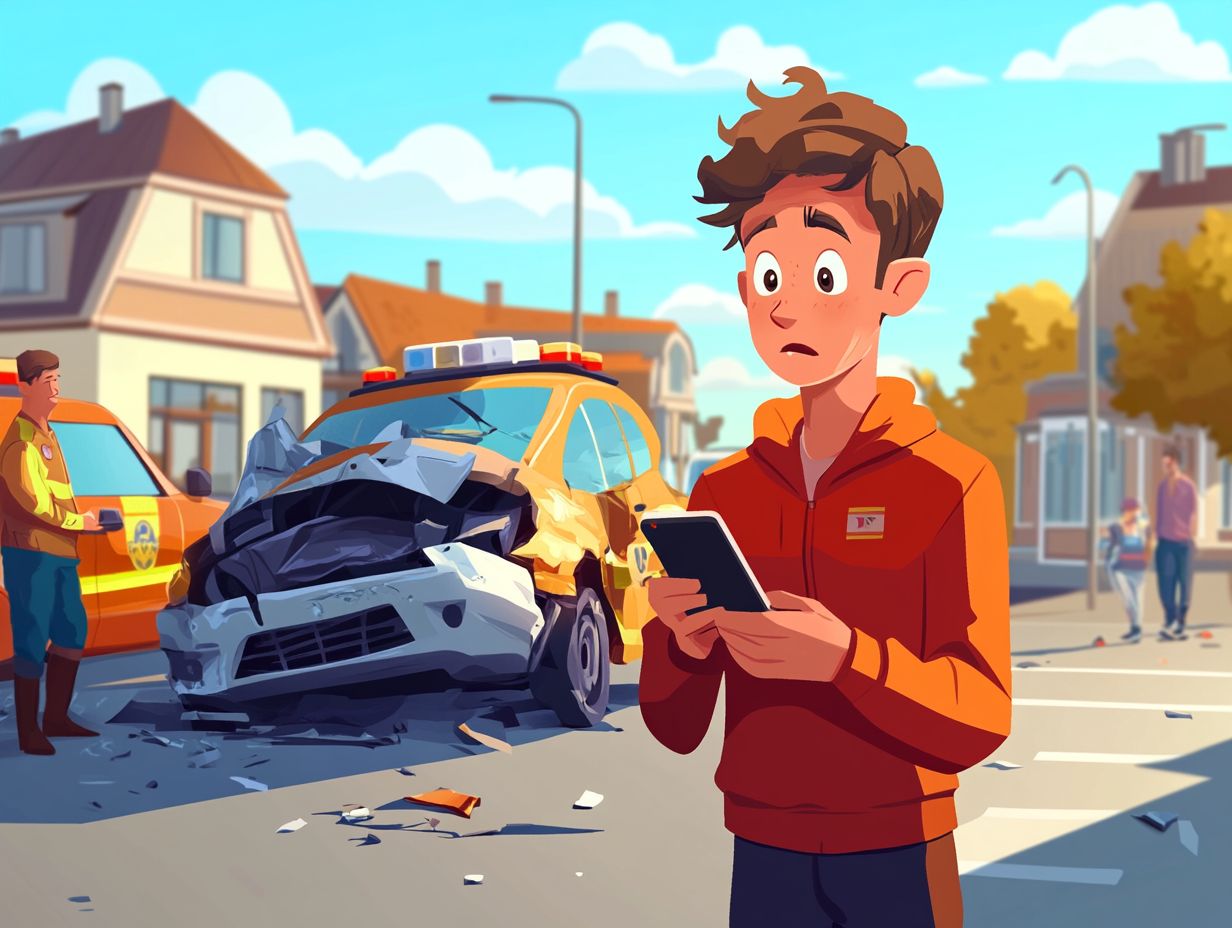
Immediate Actions to Take After a Car Accident
In the wake of a car accident, the actions you take are vital for ensuring safety, preserving evidence, and streamlining the insurance claim process.
Begin by checking yourself and others for injuries. Then secure the scene to prevent any further collisions. It s essential to notify local police to obtain an official report.
Be sure to gather critical information from the other driver, including their insurance details, and meticulously document the accident scene. This initial response not only safeguards your health and safety but also sets the stage for effective communication with your insurance company and any potential legal services you may need.
Ensuring Safety and Calling for Help
Your first priority after a car accident is ensuring your safety and that of others involved. This may mean calling for emergency medical assistance or checking what you should do after an accident if vehicles are blocking traffic.
Once those immediate needs are taken care of, it’s also crucial to check for injuries. Check on your passengers and other drivers to see if anyone requires urgent care. Staying calm and collected is essential; it helps you gather the necessary details.
If the situation permits, exchange information with the other drivers, including names, contact details, and insurance information. Don t overlook the importance of witnesses; recording their contact information can provide vital support for any accident report and insurance claims down the line.
If necessary, don t hesitate to contact local police to formally document the incident.
Documenting the Accident
Documenting the accident is crucial for preserving evidence and ensuring that every relevant detail is captured for your insurance claim process.
Start by taking photographs of the accident scene include images of vehicle damages, road angles, and any pertinent road signs.
Collect witness contact details and the other driver’s insurance information to speed up your claim. Utilizing an accident checklist can help you gather all necessary data, which is vital for establishing fault and negotiating your insurance settlement effectively.
Collecting Evidence and Information
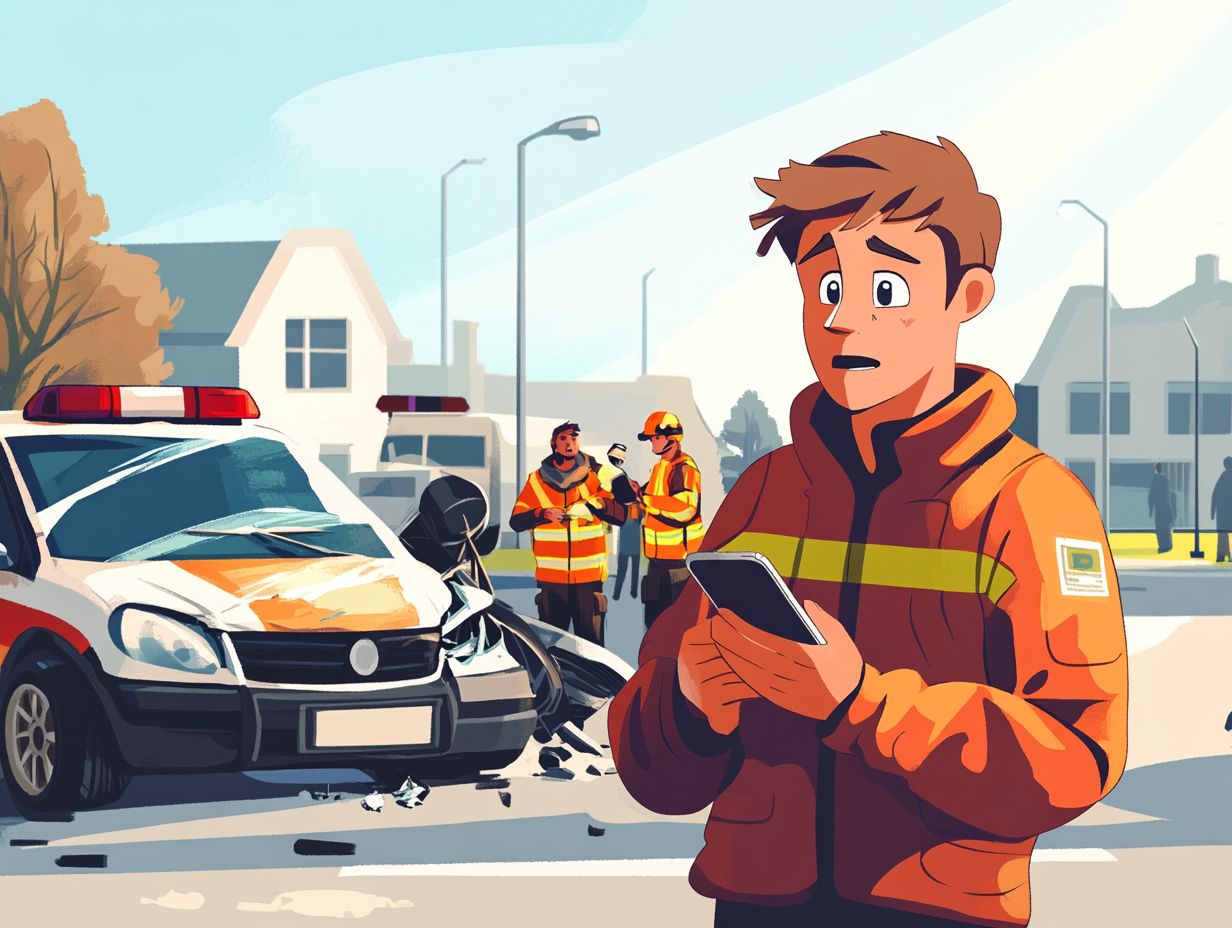
Collecting evidence and information after a car accident is essential for substantiating your claim and ensuring a seamless experience with your insurance agents and claims representative.
Start by gathering various types of evidence, such as photographs of the accident scene, which vividly illustrate the extent of vehicle damage and provide context. Witness statements can serve as valuable testimonials that back up the circumstances surrounding the incident, adding weight to your case.
Don t overlook medical records; documenting any injuries is crucial for establishing the severity of the incident.
All this information not only helps determine fault but can also influence the coverage options available under a settlement agreement. Accurate and comprehensive evidence often paves the way for a more favorable outcome, ensuring that the responsible party is held accountable.
Dealing with Insurance Companies
Navigating the world of insurance can be quite intricate. Understanding how to file a claim and familiarizing yourself with the array of coverage options like collision coverage and personal injury protection is essential for accident victims who are pursuing compensation.
These elements not only empower you but also enhance your chances of a successful recovery.
Filing a Claim and Understanding Coverage
Filing a claim with your insurance company requires a solid grasp of various coverage options, including liability insurance and uninsured motorist coverage. These are essential tools for ensuring your protection in the event of an accident.
To navigate this process effectively, it’s important to gather specific documentation. This includes police reports, photographs of the accident scene, and any medical records if injuries were sustained.
Understanding how deductibles work is crucial. A deductible is the amount you need to pay before your insurance helps cover the costs. For instance, opting for a policy with a lower premium often means you’ll face a higher deductible.
Different types of coverage, such as collision and comprehensive, play vital roles in varying scenarios. Collision coverage helps you recover damages to your vehicle from an accident, while comprehensive coverage safeguards against non-collision incidents like theft or natural disasters.
Knowing these details empowers you to make informed decisions when it matters most.
Seeking Medical Attention
Seeking medical attention after a car accident is crucial. Prompt evaluation allows for a thorough assessment of injuries, helping you avoid complications that could lead to substantial medical bills down the line.
Prioritizing your health in such situations is not just wise; it s essential for your long-term well-being.
Assessing Injuries and Getting Treatment
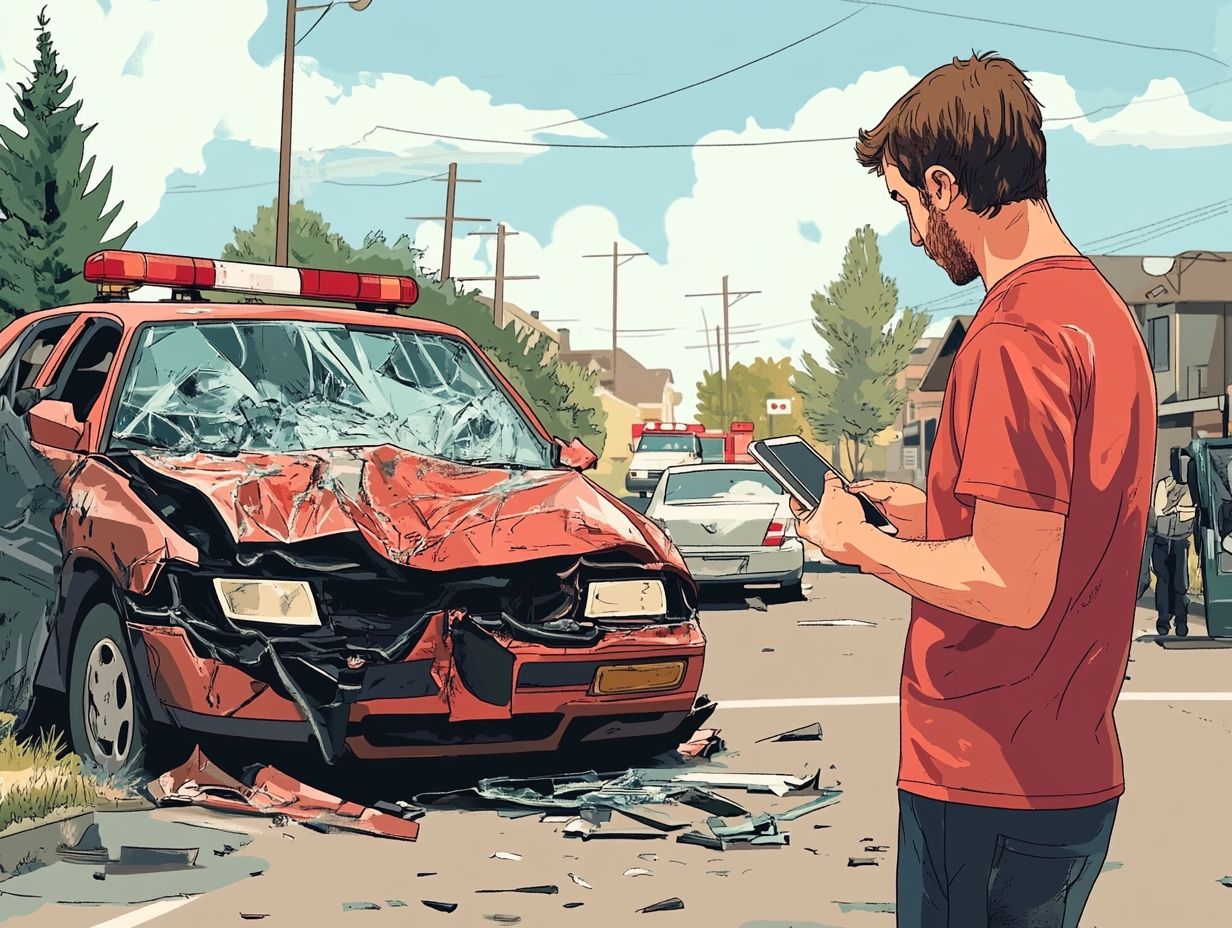
After the accident, it s essential for you to assess your injuries thoroughly and seek the appropriate treatment, as this will directly influence your personal injury protection claim and any future medical records you may need.
Injuries often include whiplash, fractures, and soft tissue damage, so identifying them early is crucial for ensuring you receive the proper care.
Comprehensive medical records not only document the extent of these injuries but also provide vital evidence for your insurance claims and any potential legal proceedings.
This documentation validates the necessity for ongoing treatment and the associated costs, strengthening your position as a claimant.
By carefully recording your symptoms, treatments, and follow-up appointments, you significantly bolster your case for personal injury protection, laying a solid foundation for compensation for your suffering.
Legal Considerations
Navigating the legal landscape after a car accident requires a clear understanding of your rights as a victim. This often means enlisting legal services to adeptly handle fault-based claims and settlement agreements, ensuring you are well-positioned to achieve a favorable outcome.
When to Consult with a Lawyer
Consulting with a lawyer can be invaluable for accident victims, particularly when it comes to navigating the complex landscape of fault determination in insurance claims and the overall claim process.
In cases where fault is disputed, you might find yourself caught in protracted negotiations, which could jeopardize your financial compensation due to that uncertainty.
If inadequate insurance coverage becomes an issue, having legal representation can be essential in pursuing additional sources of compensation, ensuring that every possible avenue is explored.
Severe injuries often lead to substantial medical bills and loss of income, heightening the need for skilled advocacy.
In these daunting situations, having an attorney by your side can protect your rights, leverage their legal expertise, and provide you with much-needed peace of mind amid the chaos that follows an accident.
Understanding Your Rights and Responsibilities
Understanding your rights and responsibilities as an accident victim is crucial for navigating the complex world of insurance. Collaborating effectively with your claims representative, the person who helps you with your insurance claim, throughout the process is essential.
This knowledge gives you the power to advocate for yourself, ensuring that you re not taken advantage of during what can be a complex and often stressful experience. It s important to be aware of your entitlements regarding liability insurance. Know the necessary steps to secure fair compensation for any damages you ve incurred.
Establishing clear communication with insurers and documenting all relevant details surrounding the incident can protect your interests. By keeping detailed records, you can substantiate your claims and sidestep potential pitfalls that might arise during negotiations.
Frequently Asked Questions
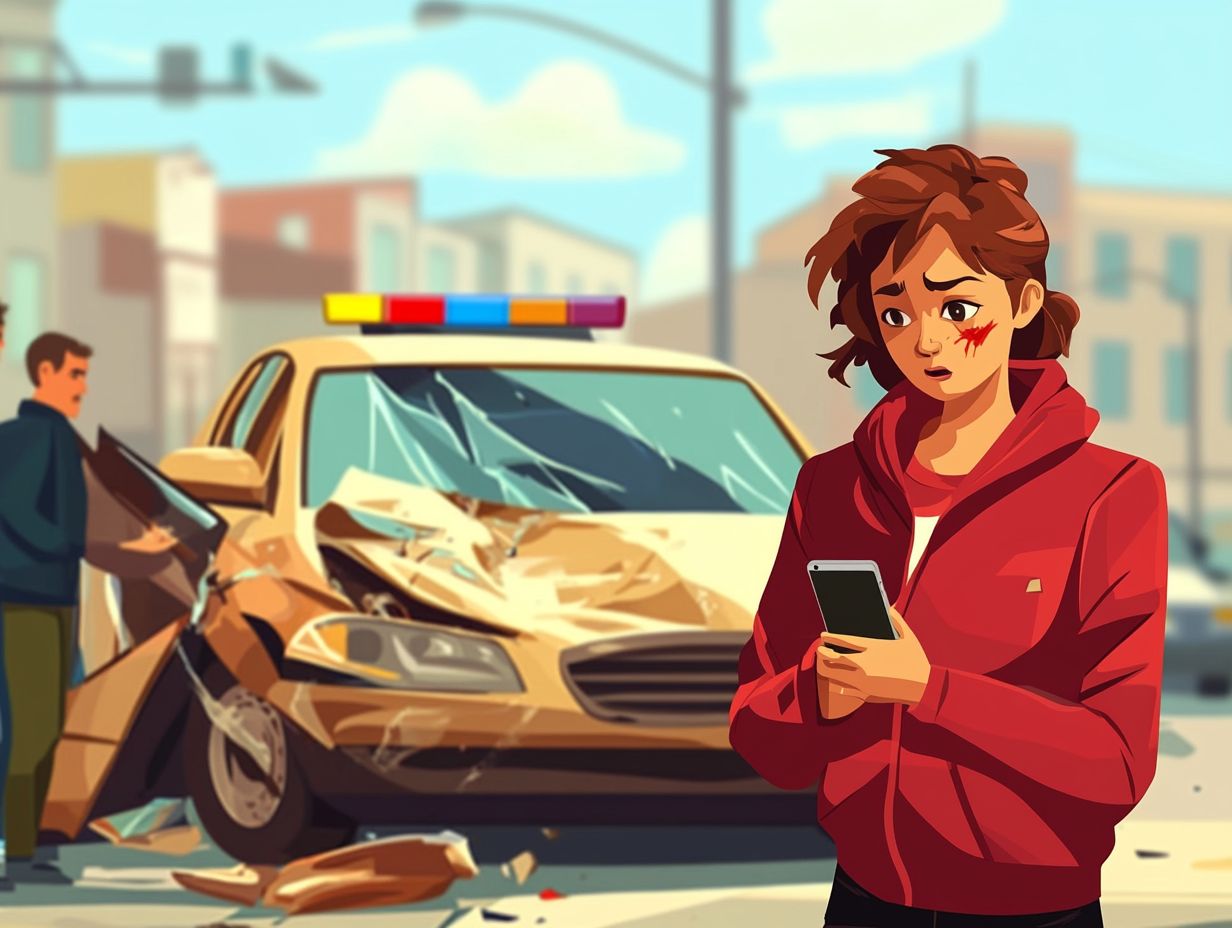
What s the First Step After a Car Accident?
If you are involved in a car accident, there are key steps to take immediately. First, check yourself and your passengers for injuries. If anyone is injured, call for medical assistance right away.
What Information Should I Gather After a Car Accident?
After ensuring everyone is safe, gather important information from the other driver(s) involved in the accident. This includes their name, contact information, insurance details, and license plate number.
Do I Need to Call the Police After a Car Accident?
It is recommended to call the police after any car accident, especially if there are injuries or significant damage to the vehicles. The police can help document the scene and file an official report, which can be useful for insurance purposes.
Can I Move My Car After a Car Accident?
If your car is blocking traffic or in a dangerous position, move it to the side of the road if possible. However, if there are injuries or significant damage, it is best to leave the vehicles as they are until the police arrive.
Should I Take Photos at the Scene of the Accident?
Yes, taking photos of the accident scene and any damage to the vehicles can be very helpful for insurance claims and legal proceedings. Make sure to take photos from different angles and include any relevant details.
What Should I Do If the Other Driver Doesn’t Have Insurance?
If the other driver does not have insurance, you may need to file a claim with your own insurance company. It s important to exchange contact information with the other driver and document the accident as thoroughly as possible.
Don’t wait understand your rights today and protect your future!



